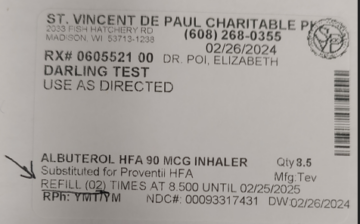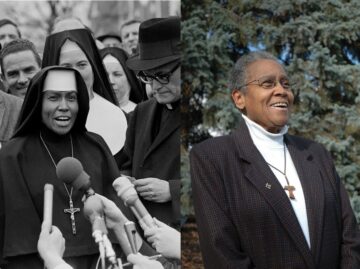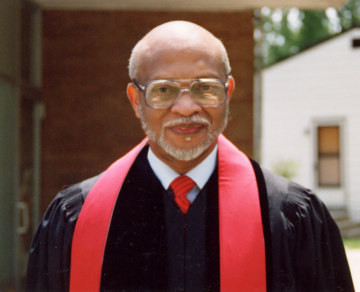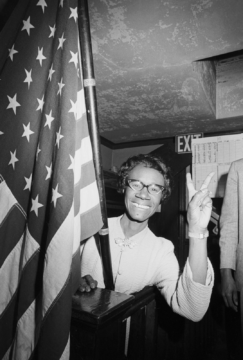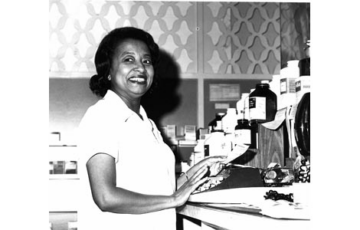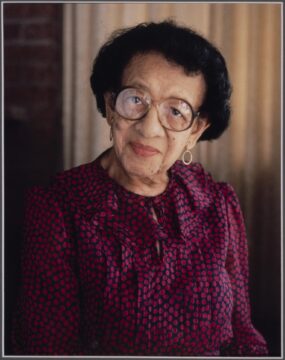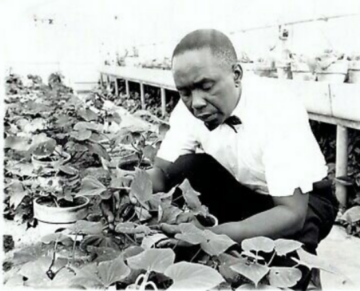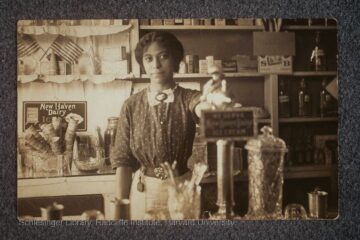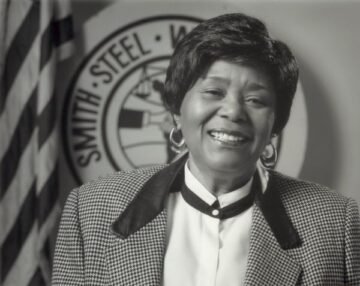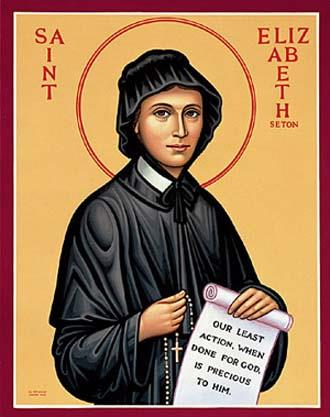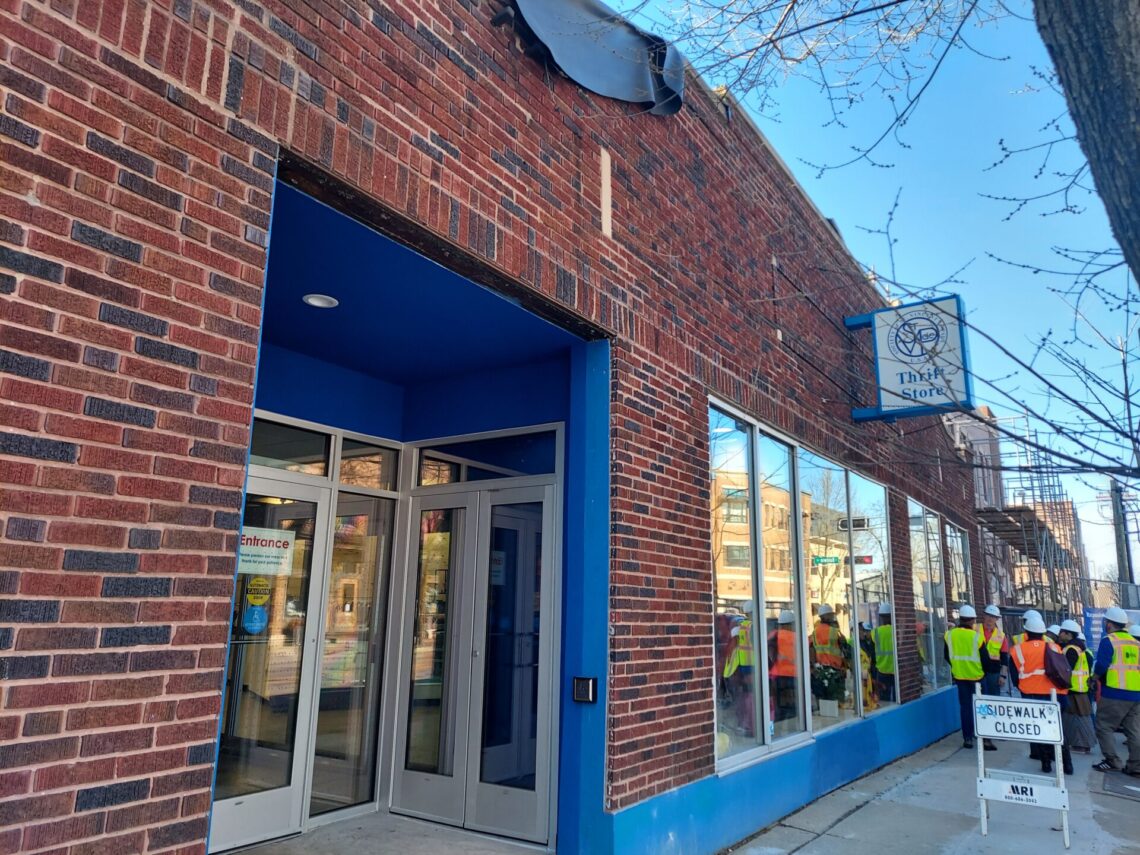The Society of St. Vincent de Paul — Madison is dedicated to helping our neighbors in need, and the establishment of La Conferencia Divina Misericordia (Divine Mercy Conference), the first Spanish-speaking conference in the Diocese of Madison, stands as a testament to this commitment. The conference, born out of a growing need for Spanish-speaking support, has quickly become a beacon of hope and assistance for many families in Dane County.
Conference Vice President, Leticia Rodríguez, was initially hesitant about committing to such a significant responsibility. However, with the encouragement of fellow Vincentian Alejandro Vergara and the shared vision of providing assistance to those in need, she embarked on this rewarding journey.
One of the core motivations for Leticia and other members is the opportunity to help others. For them, assistance is not just a material gift but a spiritual one, a way to connect with their faith and with those they help. Their home visits, now totaling about eleven each week, have become a cornerstone of their mission. They offer both material aid and spiritual encouragement (if desired) to each neighbor they visit.
Prayer is at the heart of their efforts. Prayer for discernment of how to assist, prayer for perseverance, prayer for a growing relationship with Christ and prayer that others will be inspired to join the mission. Members have received practical assistance, encouragement and spiritual guidance from their local pastors and Bishop Hying. Knowing that their priests are praying for them and for their mission gives them hope, Leticia said.
“La Conferencia Divina Misericordia, like all Society of St. Vincent de Paul Conferences, is important because it deepens members’ faith by encountering God in others and within themselves,” Gayle Westfahl, Membership Director, said. “Through friendship, service and prayer, members deepen their relationship with God. They open themselves up to experience the goodness of God within others and within themselves.”
The future of La Conferencia Divina Misericordia is bright! Leticia hopes to welcome more members into the conference, especially this month as the Catholic Church celebrates Divine Mercy Sunday – the conference’s namesake. Along with her fellow Vincentians, she strives to pass on the values of compassion and service to future generations.
“One day this conference will belong to our children,” Leticia continued. “We want to show them the value and goodness of helping others.”
The establishment of La Conferencia Divina Misericordia is not just a milestone for the Society of St. Vincent de Paul but also for the Spanish- speaking community in Dane County. It is a testament to the power of faith, compassion, and community in making a difference in the lives of those in need.
Want to grow in your faith through service and fellowship? Any Spanish-speaking adult in Dane County is welcome to join La Conferencia Divina Misericordia. Learn more here: /member-conferences/.
La Sociedad de San Vicente de Paul — Madison está dedicada a ayudar a nuestros vecinos en necesidad, y el establecimiento de La Conferencia Divina Misericordia, la primera conferencia en español de la Diócesis de Madison, permanece como un testamento a este cometido. La conferencia, creada por la necesidad del soporte de habla hispana, ha crecido rápidamente como un faro de esperanza y asistencia para muchas familias en el condado de Dane.
La Presidenta de la Conferencia, Leticia Rodríguez, en un principio dudaba en comprometerse a esta responsabilidad tan importante. Sin embargo con el ánimo del compañero Vicenciano Alejandro Vergara y al compartirle la visión de ayudar a los más necesitados, ella se embarcó en este viaje sumamente gratificante.
Uno de los centros de motivación de Leticia y otros miembros es la oportunidad de ayudar a otros. Para ellos, asistencia no es solo un regalo material sino también espiritual, una manera para conectarse con su fe y con los que ayuda. Las visitas en casa, con once cada semana, han llegado a ser la piedra angular en su misión. Ellos ofrecen ayuda material y anímico espiritual (si así lo desean) a cada vecino que visitan.
El rezo es el corazón del esfuerzo. El rezo es el discernimiento en cómo ayudar, el rezo para la perseverancia, el rezo para crecer los brazos de amistad con Cristo y el rezo para que otros se sientan inspirados para unirse a la misión. Los miembros han recibido asistencia práctica, ánimo espiritual de parte de sus pastores locales y el Obispo Hying. Con esto en mente, sabiendo que los sacerdotes están rezando por ellos y por su misión les da ánimo, dijo Leticia.
“La Conferencia Divina Misericordia, al igual que todas las sociedades de conferencias de San Vicente de Paul son importantes por que dependen de la fe de sus miembros encontrándose con Dios en otros y entre ellos mismos,” Gayle Westfahl, Directora de membresías, dijo. “Por medio de la amistad, servicio y rezos, los miembros dependen de la relación con Dios. Ellos se abren a experimentar la bondad de Dios en otros y entre ellos mismos.”
El futuro de La Conferencia Divina Misericordia es brillante! Leticia espera darle la bienvenida a más miembros para las conferencias, especialmente este mes que la Iglesia Católica celebra el Domingo de La Divina Misericordia – el nombre a la conferencia. Junto con los compañeros Vicentinos, ella se esfuerza en compartir los valores de compasión y servicio a nuestras futuras generaciones.
“Un día esta conferencia pertenecera a nuestros hijos,” Leticia continuo. “Queremos enseñarles nuestros valores y la bondad que es ayudar a otros.”
El establecimiento de La Conferencia Divina Misericordia no es solamente una meta a la Sociedad de San Vicente de Paul pero también lo es para la comunidad de habla hispana del Condado de Dane. Es el testamento del poder de la fe, compasión y comunidad en hacer la diferencia en las vidas de los más necesitados.
¿Quiere hacer crecer su fe por el servicio y el compañerismo? Cualquier adulto hispano hablante en el Condado de Dane es bienvenido a unirse a La Conferencia Divina Misericordia. Aprenda mas aqui: /member-conferences/.
At St. Vinny’s, we take your donations seriously!
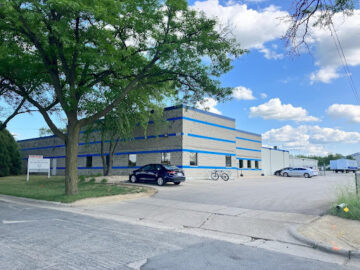
Every piece of clothing, book or furniture item you donate makes its way to the St. Vincent de Paul Processing Center in Madison. Once there, it is inspected, priced, hung (if needed), and placed on a semi trailer for delivery to one of our seven thrift stores. A team of about 80 people (55 on any given day) work here. Each type of donated item has its own sorting room: electronics, softlines (clothing, linen), hardlines (knick-knacks, kitchen goods), books, furniture.
Centralized processing at our warehouse means our thrift stores operate like traditional retail. When staff receive new goods at their stores, the items are already sorted, priced and ready for sale! Centralized processing allows us to randomly distribute goods across our stores.
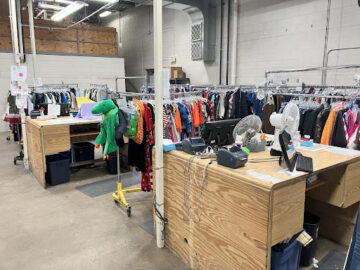
After staff diligently inspect each donation, items are sent to one of these four places:
- One of our St. Vinny’s Thrift Stores
- Dig & Save Outlet Store
- St. Vinny’s Online Store
- Recycling
Recycling Efforts
When you donate goods to St. Vinny’s we make the most effective and sustainable choice to use those goods to their fullest potential. The large majority of items we receive are either sold or given away through charity right here in Dane County! When you shop and donate to St. Vinny’s you help your planet, help you budget and help your neighbors in need.
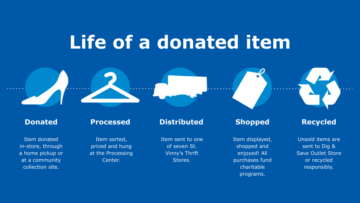
If an item does not sell at one of our six thrift stores, we send it to Dig & Save Outlet Store. There, we let the community decide what is usable, what is sellable and what is not. Dig & Save Outlet Store is a “pay-by-the-pound” store where clothing is $1.50 / lb. and miscellaneous goods are $0.60 / lb.
If an item does not sell at one of our six thrift stores and does not sell at Dig & Save Outlet Store, we recycle it. We recycle as much as we can and are constantly working with local and national outlets for sustainable options.
We recycle items such as:
- Books
- Clothing
- Handbags
- Shoes
- Cardboard
- Scrap metal
- Plastics
- E-waste
- Christmas lights
- Insulated wire
- Tablets
- Batteries
Fun Facts
- In 2023, we recycled 225,000 lbs of clothing each month.
- Our Processing Center distributes 170 racks of clothing to our stores each week.
- Dig & Save Outlet Store receives 3 shipments (trailer shipments) of goods each day.
- The International Council of the Society of St. Vincent de Paul is an associate member of UNESCO and a special adviser to the UN Economic and Social Council (ECOSOC). It is also part of the Global Catholic Climate Movement and is aligned with the 17 Sustainable Development Goals (SDGs) proposed by the United Nations in its Agenda 2030. (https://www.ssvpglobal.org/about-us/)
Watch our store webinar for more information on our sustainability practices: Why Do St. Vinny’s Thrift Stores Exist?
Did you know that a powerful set of virtues root the work you do for neighbors in need?
Gentleness, Selflessness, Simplicity, Humility and Zeal are our guiding principles. These virtues impact every aspect of our organization from our thrift stores and volunteers to our home visits and charitable programs. Your compassion is essential too. In your kindness you have alleviated our neighbors’ suffering and upheld their dignity.
Take a look at the impact of your support (October 1st, 2022 – September 30th, 2023)…
Gentleness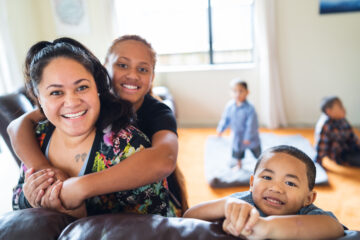
Compassionate help that provides stability
Our gentleness is expressed through a friendly assurance and invincible goodwill, which mean kindness, sweetness, and patience in our relationships with others.*
Because of you, St. Vincent de Paul Charitable Pharmacy staff go the extra mile for adults unable to afford their prescription medications. The gentle care they provide includes taking time to organize medications, check a blood sugar level, and answer patients’ questions. As a community pharmacy, staff have the unique opportunity to spend quality time with patients to make sure they understand their medications. With help from pharmacy and nursing student volunteers, the pharmacy is also an incubator for future medical professionals who are passionate about helping underserved communities. A recent survey showed that 74% of Spanish-speaking patients responded “strongly agree” or “agree” when asked if they felt respected when visiting the pharmacy.
Your gentle care for single adult families experiencing the trauma of homelessness is remarkable. On any given evening, between 70 and 100 Dane County families are homeless. These adults and children living in shelters, outdoors or in their cars are more likely to face hunger, poor hygiene and delayed early-childhood development. Through the St. Elizabeth Ann Seton Program, single parents and their children have the support they need to stabilize in permanent housing.
12 single-adult families are currently receiving ongoing case management support to prevent a recurrence of homelessness, heal from trauma, and set goals for their future.
Selflessness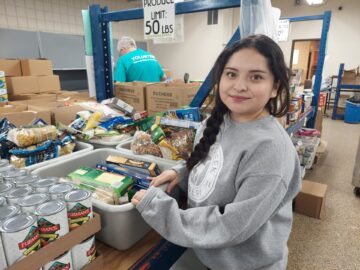
Thanks to you, no one needing help has been turned away
Dying to our ego with a life of self-sacrifice; members share their time, their possessions, their talents and themselves in a spirit of generosity.*
Every week, hundreds of caring volunteers sort, pack and deliver food to families struggling to make ends meet. These faithful souls remove the one damaged orange from a donated bag and repackage it, check expiration dates, and move hundreds of pounds of milk, dairy, and meat between the food warehouse, into shopping carts, and into cars.
Your selfless gifts of time and talent means that no one needing food was turned away from the pantry this year despite escalating need. Access to quality food means people have money to pay for gas, rent and utilities – bills that have no other social support.
2,204 families with transportation barriers received food through DoorDash delivery.
5,336 families choose culturally-appropriate and dietary-friendly food through the Pantry2Home online system.
Simplicity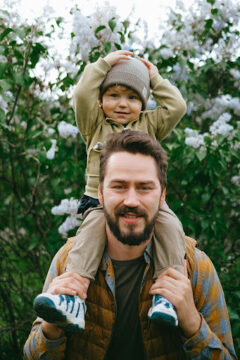
Neighbors receive basic essentials for their day
Simplicity is expressing ourselves honestly, with frankness, integrity, and genuineness.*
Simplicity is central to how you help neighbors in need through St. Vincent de Paul — Madison. Thanks to you, neighbors receive essentials of food, diapers, medicine, clothing and furniture. These basic needs are offered simply with the intention that neighbors can access them without complicated processes or unnecessary questions. Care is provided without regard to a neighbor’s sexuality, race or legal status.
Each day, about ten adults or children receive clothing at no cost to them from St. Vinny’s Thrift Stores. Sometimes families have lost all of their possessions in a fire and need clothing. In other cases, young kids wear through clothing and need bigger sizes faster than what a family can save for. Your generous material and financial support means we’re able to donate goods directly from our stores to people in need. Along with providing a reliable thrift experience for shoppers (we know that’s many of you!), our stores are visible signs of our collective work in our community and commitment to helping our neighbors in need.
Your generosity provided clothing to 3,607 adults and children.
Humility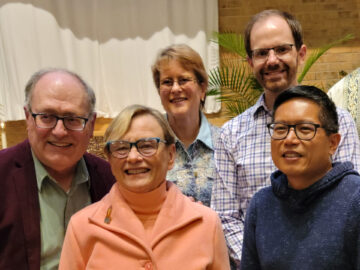
Home visitors offer a personal connection to struggling neighbors
Humility can be understood as humbleness, “the foundation of all the other virtues” or “the knowledge of truth.”*
In a spirit of humble generosity, St. Vincent de Paul Members offer their very selves to neighbors in need. Volunteer home visitors respond to calls for help by meeting with neighbors in their homes. They offer a listening ear and encouragement to neighbors; they problem solve and provide information on community resources. Many times, they find that people just need someone to talk with to remember that they are not alone. Often families moving into new apartments lack beds, furniture, pots, pans, dishes and utensils. Home visitors direct neighbors to St. Vinny’s Thrift Stores where they can redeem clothing and furniture vouchers giving dignity, warmth, comfort and hope for brighter days ahead.
Home visitors help where they can. If a neighbor’s needs are more sizable, they may refer them to our Sr. Rosalie Fund for one-time financial assistance. For example, a car repair or unexpected medical bill may threaten a neighbor’s ability to pay rent. The Sr. Rosalie Fund is reserved for these types of bills that are one-time emergencies. Your support of time, talent, and treasure fuels the work of home visitors. The goods you donate generate income, your volunteer hours, and your financial gifts all come together to help our neighbors in need.
54 families received one-time financial help through the Sr. Rosalie Fund.
Vincentian member volunteers conducted 1,135 person-to-person home visits.
Zeal
Being available and present when neighbors call
Zeal, which St. Vincent de Paul once described as “the soul of all the virtues,” is a passion for the full flourishing and eternal happiness of every person.*
Your support of our neighbors in need through St. Vincent de Paul — Madison kindles our collective zeal to actively alleviate suffering. You are part of a large team of people, businesses and foundations working to help our neighbors in need. Many of you have been supporters of neighbors in need for years and decades – thank you! Some of you are new in joining us to help our neighbors in need – welcome!
It’s hard to be poor. It’s hard to not know where your next meal will come from or not have proper clothing during winter. With you, so many people in our community have someone to turn to for help. Our neighbors’ resilience is strengthened when they walk through challenges with someone by their side.
2,494 individual, business, and foundations gave support.
$3,860,435 received in financial contributions.
None of this would be possible without you. Thank you for your generosity. Will you continue to kindle our zeal so that every person can fully flourish? Please give now: /donate/.
*The Vincentian Virtues, National Council of the United States Society of St. Vincent de Paul, https://members.ssvpusa.org/our-spirituality/the-vincentian-virtues/
Dear friends,
The Society of St. Vincent de Paul essential values of Gentleness, Selflessness, Simplicity, Humility and Zeal guide us to serve our neighbors every day. I know we share these values and I thank you for your dedication to caring for our neighbors in need. Take a look at the impact of your support and know that each number, each data point represents a real family or individual.
During this season of Lent, I’m intentionally taking daily time to pause and reflect on my faith journey. My Catholic tradition asks me to particularly use prayer, fasting, and almsgiving to build my relationship with God.
- Prayer… I’ve built prayer into my daily life for a long time. I pray for you and for our Members, staff and volunteers every day. I pray for our neighbors in need, that their burdens may be eased by people like you and by changes in our society that will help them thrive. I hope you pray for me too!
- Fasting… When our kids were young, one Lent we did a water “fast,” meant to be in solidarity with children around the world who have to carry water for their families instead of going to school. I don’t think we lasted a week! But fasting done right helps us differentiate needs and wants. Fasting reminds us of those who live without basic essentials, and prompts us to order our decisions accordingly.
- Almsgiving… During Lent, my husband and I try to be more generous. To find ways to say “yes” to the needs before us every day. You have been generous already. Thank you! I hope you’ll be generous again this season, perhaps in a new way.
- Will you make an extra gift, knowing that so many more people need help?
- Will you become a quarterly or monthly donor? This helps stabilize our budget year-round and might be a way for you to give a little more.
- Will you consider a legacy gift by including us in your will, as a beneficiary for an insurance policy, or making a gift of appreciated assets like stock or bonds?
This is my prayer today:
May the good you do for neighbors in need return to you in joy and fellowship. May others follow your lead in compassion, kindness, and generosity to make our community better for all, particularly those most in need. May this time be one of outward focus; seeking to give ourselves to those the world often ignores. And may you be blessed beyond measure for your goodness. Amen.
Julie Bennett
CEO & Executive Director
English
Application Questions
How much does it cost to use the St. Vincent de Paul Charitable Pharmacy?
There is no charge to use our program. All prescriptions are free to the patient. Once you have been approved, you will be enrolled for up to one year and must re-enroll annually thereafter.
Why do I need to re-enroll every year?
Our pharmacy gives out medication donated by pharmaceutical companies, which audit us annually to verify that we have only given their products to patients who meet their criteria. Therefore, we ask all patients to renew their information at least once a year to maintain accurate records.
How can I enroll? / What do I need to enroll?
In order to apply for our program, you must be at or below 300% of the Federal Poverty Level (FPL). You must also not have insurance, and either be a resident of or see a doctor in Dane County, Wisconsin. Feel free to call us at (608) 268-0355 for more information or questions about your situation
If you meet the criteria for application, please bring one document from each of the categories below or upload them to the online application:
- A. Proof of ID (options below)
- Passport
- Driver’s License
- State ID
- International ID
- School ID
- B. Proof of Income (as applicable per the guidelines below)
- Paystubs
- If you get paid every two weeks, provide your last two pay stubs.
- If you get paid every week, provide the last four paystubs.
- If you get paid in cash, provide a letter of employment stating how much you get paid a week or per month.
- Statements from Social Security, Child Support, Food Stamps, Retirement or Disability
- If someone is supporting you financially, have them write a letter of support (spouses cannot write a letter of support, they must provide their income). **Letters of support must be signed & dated with the phone number of whoever wrote it.
- Paystubs
- C. Proof of Address (only needed if your address is NOT on your ID) (options below)
- A bill with your address on it
- Lease agreement
- Drivers License
- State ID
- Auto Insurance
- Treatment Program ID
- Letter of Hardship
You can use this link on our website to apply online, or you can CALL US at (608) 268-0355 and you can schedule your enrollment appointment. In this case, please bring paper copies of your documentation.
How do I determine if I am below the FPL limit?
Please use this link, with a calculator to determine if you can apply: https://www.needymeds.org/federal-poverty-level-calculator
What is the status of my application?
If you’ve applied online, please give us at least 1 or 2 business days to process your application, then call and ask when you can schedule an appointment to receive your medication.
When is the Pharmacy open?
- Monday 11:00am- 2:00pm
- Tuesday 1:00pm- 4:00pm
- Thursday 10:00am- 6:00pm
Are there other ways for me to get assistance with my medicine or health care?
CoveringWisconsin is a fantastic program designed to help anyone navigate, find and apply for affordable health insurance and other social services. It provides a breakdown of options for support by county here.
RX Questions
Can someone else pick up my medication for me?
Yes. You (the patient) must come to the pharmacy in person at least once, either to pick up medicine or finish your application. After that, someone can pick up my medication for you, as long as they bring suitable ID
The medication I need is not listed on the formulary, will I be able to get it?
Our formulary is a list of medications that we have on hand at any given time, we MAY have medicine not listed. If your medication is not listed, please call and we can check or try to find a substitute.
Will I always receive 30 day supplies of medicine?
We aim to provide our medication in 30 day supplies. We may change this supply to either longer or shorter supplies if there is a pressing or unusual circumstance.
How often can I refill my prescriptions?
You can call ahead to refill your prescriptions up to 5 days early.
How many refills do I have remaining?
Please check on your medication bottle.
How can I request a refill on my medications?
When you run out of refills from your doctor, we can call to request refills for you in some cases. However, some doctors will require an appointment with you (the patient) to get refills. We will let you know if you have to see your doctor to get new refills.
Español
Preguntas sobre la Aplicación
¿Cuánto cuesta usar la Farmacia Caritativa San Vicente de Paúl?
El uso de nuestro programa es gratuito. Todas las recetas son gratuitas para el paciente. Una vez que haya sido aprobado, estará inscrito hasta por un año y deberá volver a inscribirse cada año.
¿Por qué tengo que volver a inscribirme cada año?
Nuestra farmacia entrega medicamentos donados por compañías farmacéuticas, que nos auditan anualmente para verificar que solo hemos entregado sus productos a pacientes que cumplen con sus criterios. Por lo tanto, pedimos a todos los pacientes que renueven su información al menos una vez al año para mantener registros precisos.
¿Cómo puedo inscribirme/Qué se necesita para inscribirme?
Para solicitar nuestro programa, debe estar en o por debajo del 300% del Nivel Federal de Pobreza (FPL). También debe no tener seguro y ser residente del condado de Dane, Wisconsin, o ir a un médico en el condado de Dane. No dude en llamarnos al (608) 268-0355 para más información o preguntas sobre su situación.
Si cumple con los criterios para la solicitud, traiga 1 documento de cada una de las categorías a continuación o entrégalos en la solicitud en línea.
- A. Prueba de Identificación (opciones a continuación)
- Pasaporte
- Licencia de conducir
- Identificación estatal
- Identificación internacional
- Identificación de la escuela
- B. Prueba de Ingresos (según corresponda de acuerdo con las pautas a continuación)
- Recibos de pago:
- Si le pagan cada dos semanas, proporcione sus dos últimos talones de pago.
- Si le pagan cada semana, proporcione sus cuatro últimos talones de pago.
- Si le pagan en efectivo, proporcione una carta de empleo que indique cuánto le pagan a la semana o al mes.
- Declaraciones del Seguro Social, Manutención de Niños, Cupones de Alimentos, Jubilación o Discapacidad.
- Si alguien le está apoyando financieramente, pídales que escriban una carta de manutención (los cónyuges no pueden escribir una carta de manutención, deben proporcionar sus ingresos). *Las cartas de apoyo deben estar firmadas y fechadas con el número de teléfono de quien las escribió.
- Recibos de pago:
- C. Prueba de Dirección (solo necesaria si su dirección NO está en su prueba de identificación) (opciones a continuación)
- Una factura con su dirección
- Acuerdo de arrendamiento
- Licencia de conducir
- ID del estado
- Seguro de automóvil
- ID de su Programa de Tratamiento
- Carta de dificultad
Puede utilizar este enlace en nuestro sitio web para solicitar en línea, o puede LLAMARNOS al (608) 268-0355 y puede programar su cita de inscripción. En este caso, por favor traiga copias en papel de su documentación.
¿Cómo determino si estoy por debajo del límite del FPL?
Utilice este enlace, con una calculadora para determinar si puede presentar una solicitud: https://www.needymeds.org/federal-poverty-level-calculator
¿Cuál es el estado de mi solicitud?
Si ha presentado su solicitud en línea, por favor denos al menos 1 o 2 días hábiles para procesar su solicitud, luego llame y pregunte cuándo puede programar una cita para recibir sus medicamentos.
¿Cuál es el horario de la farmacia?
- Lunes 11:00 a.m. – 2:00 p.m.
- Martes 1:00 p.m. – 4:00p.m.
- Jueves 10:00 a.m. – 6:00 p.m.
Preguntas sobre Medicina
¿Otra persona puede recoger mis medicamentos en mi nombre?
Sí. Usted (el paciente) debe venir a la farmacia en persona al menos una vez, ya sea para recoger sus medicamentos o terminar su aplicación. Después de eso, alguien más puede recoger sus medicamentos en su nombre, siempre y cuando traiga la identificación adecuada.
El medicamento que necesito no aparece en el formulario, ¿Podré obtenerlo?
El formulario representa una lista de medicamentos que esperamos tener a mano en un momento dado, ES POSIBLE QUE tengamos medicamentos no listados. Si su medicamento no está en la lista, por favor llame y podemos verificar o tratar de encontrar un sustituto.
¿Siempre recibiré suministros de medicamentos para 30 días?
Nuestro objetivo es proporcionar nuestros medicamentos en suministros de 30 días. Podemos cambiar este suministro a suministros más largos o más cortos si hay una circunstancia apremiante o inusual.
¿Con qué frecuencia puedo volver a pedir mis medicamentos?
Puede llamar para volver a recoger sus medicamentos con anticipación hasta 5 días antes de que su frasco actual se acabe.
¿Cuántas recetas me quedan?
Por favor, revise su frasco de medicamentos.
¿Cómo puedo solicitar nuevas recetas de mis medicamentos?
Cuando se queda sin recetas de su médico, podemos llamar para solicitar recetas para usted en algunos casos. Sin embargo, algunos médicos requerirán una cita con usted (el paciente) para obtener nuevas recetas. Le informaremos si tiene que ver a su médico para obtener nuevas recetas.
Without food pantries, thousands of people in our community wouldn’t have access to enough food to meet their basic needs.
The demand across six of Dane County’s largest food pantries has reached record highs, more than doubling over the last two years, while charitable giving has plummeted nationwide during that same time period. The 112% increase represents the average increase in the number of household visits across the six pantries between December 2021 and December 2023.
Up to this point, community support has been a critical part of how pantries have met the need, local pantry leaders said.
“We have never turned anyone away, but we have had to put some limits on the amount of food people can take,” said Ellen Carlson, executive director for WayForward Resources in Middleton. “We worry about how we and other local food pantries can continue to ensure that everyone in our community has access to nutritious food.”
The pressure on pantries to meet the need escalated in Spring 2023 as pandemic-era supports phased out, including the expanded child tax credit, universal free school lunches, and increased federal food and rental assistance.
“In the past four years, we’ve felt the impact of a pandemic, inflation, high housing costs and increased migration,” said Tracy Burton, Badger Prairie Needs Network Food Pantry Director. “All of these combined have resulted in over five times the number of visits to our pantry from pre-pandemic levels.”
Rhonda Adams, executive director of The River Food Pantry, said the number of households in need of the pantry’s services began growing steadily over the past few years and then surged when most pandemic relief programs phased out last spring, resulting in over 276,000 visits by households in need of groceries and meals in 2023 alone. “Food insecurity is a communal issue, even if we may not always recognize when it is affecting our friends and neighbors, and support from the broader community will continue to be essential to successfully addressing it,” Adams said.
While inflation has slowed down, prices for basic goods and housing have not returned to pre-pandemic levels. The consumer price index, the most widely-followed measure of inflation, remains about 20% higher than it was before the pandemic. In addition, the steep increase in housing costs in Dane County means many households in our community have to focus even more of their income on rent.
“Many of our customers are people who are employed full-time and finding it necessary to choose between paying bills and buying food,” said Francesca Frisque, Goodman Community Center food pantry assistant director, who said growth there has been consistent and “sometimes staggering.”
“We’re thankful for so many generous partners throughout the community, and we have an incredible base of donors who give regularly. Even still, we’re not seeing as many donations come in, and we’re having a hard time keeping our shelves stocked,” Frisque said. “Without help from the community, we wouldn’t be able to meet the need of our Madison neighbors.”
Food pantries help families stretch their budgets so they don’t have to go without basic necessities and can continue to cover costs such as filling their gas tank to get to work and paying for prescriptions.
“We continue to respond to escalating pantry need with a variety of food options so people and families don’t have to choose between paying rent and buying groceries,” said Chris Kane, senior director of client services at the Society of St. Vincent de Paul — Madison.
Here are some of their stories:
- Jeremy, Marcella (names changed) and their three young kids recently moved to Dane County. Even though both Jeremy and Marcella work full time, it’s still difficult to make rent each month, pay for utilities and buy food and diapers for the family. Thanks to the St. Vincent de Paul Food Pantry, they can get essentials like milk, butter, eggs and bread to feed their kids. It’s things that help them get by each month while allowing them to expedite their savings so they can thrive long term.
- Ryan and Lexy (names changed) began visiting the WayForward Resources food pantry after he was laid off from a marketing firm where he had a promising career path. Lexy is in treatment for cancer and has significant medical bills. The couple is using all of their savings to maintain the health insurance coverage from Ryan’s former employer while he looks for another job. The pantry is a critical piece of their stability, allowing them to stay in their apartment.
- Bill (name changed) visits the Goodman Community Center food pantry every week, and the variety of fresh foods have made a positive impact on his diet. “I use the pantry every week, and it allows me to eat more healthy foods than I could otherwise afford. I’m very grateful for it.” Goodman pantry staff report that many customers share a similar sentiment, with some even bringing photos each week of meals they’ve prepared with food from the pantry.
- Mary (name changed) describes her experience at Badger Prairie Needs Network. “I’m a single mom just a hair above qualifying for food help. This pantry is a blessing every time. I have a young child with special needs. The items we get are incredible for him. We get so excited each time we go knowing that he will get food we couldn’t afford.”
- “The pantry has helped me be able to stay in my home by providing food when my budget is stretched terribly thin,” a client from The River Food Pantry said. Others who visit The River shared that being able to get food from the pantry meant they did not have to choose between eating and paying other bills. “My child and I would not be eating much without The River groceries. This is our key to getting by,” another client said.
- Annie (name changed) found the Sun Prairie Food Pantry during the early days of the pandemic. At the time her son was a baby, and receiving diapers and wipes from the pantry in addition to food was a huge help. When the Child Tax Credit payments ended in 2022, Annie found herself needing to use the pantry again. “We [my husband and I] both work but some months we just can’t make it.” They recently found out they’re expecting again, and they’re relieved to know they can count on the Sun Prairie Food Pantry as their family grows.
“We won’t turn anyone away, and we’re spending more money each month to make sure our shelves are stocked,” said Catie Badsing, manager of food security programs at the Sun Prairie Food Pantry at Sunshine Place. As the gap between wages and cost of living continues to widen, Badsing said pantries will keep seeing more new families who need their services. More than 8% of employed adults in Wisconsin live in food insecure households, according to a recent Census Pulse Household Survey.
“Our shifts outside of regular working hours are our busiest, which means most of our customers are working, sometimes multiple jobs,” Badsing said.
There is a misconception that food pantries operate mainly with state or federal support, but only a small amount of food comes in through the federal Emergency Food Assistance Program. Instead pantries must stock their shelves by relying on a complex web of systems and collaborations. That includes strategic partnerships like those with Second Harvest Foodbank of Southern Wisconsin, food rescues from local grocery and convenience stores, as well as monetary and food donations from businesses, foundations, churches, and individuals.
“Unfortunately, many grants have stayed at the same levels, pandemic era funding is gone, our guests’ SNAP benefits have been reduced, and our food banks have been struggling to keep up with this growth,” said Burton from Badger Prairie Needs Network. “We’ve been grateful to be in a community that has always risen to the need — but with this enormous growth, we will need to find new sources of food and/or money or will have to restrict access to the pantry.”
While generous food drives at the end of 2023 had a major impact for people in our community, hunger doesn’t end with the holiday season. Donations of money, food and your volunteer time can all make an immediate difference in the lives of so many of our neighbors who need our support now more than ever.
During February’s Black History Month, we celebrated the work and shared information on some significant Black historical figures. The people we highlighted this year were specifically chosen due to their connection with our Catholic heritage, Wisconsin/Dane County, our food pantry, pharmacy, or the people we serve. Here are this year’s featured people…
1. Sister Antona Ebo
Sister Antona Ebo was a Franciscan Sister of Mary and hospital administrator. She was one of six Catholic nuns who marched to Selma, Alabama in 1965 to protest discriminatory voting practices and highlight racial injustice. She became the first African American woman to head a Catholic hospital when she was named executive director of St. Clare’s Hospital in Baraboo, Wisconsin. In Madison, she was chaplain at St. Mary’s Hospital Medical Center and was involved in social projects with Madison Urban League, the Madison Housing Authority, the NAACP and other local organizations.
Read more: https://www.franciscanmedia.org/st-anthony-messenger/antona-ebo-fsm-brave-sister-of-selma/, https://www.newspapers.com/article/the-capital-times-madisons-losing-siste/68066298/
2. Rev. James C. Wright
Rev. James C. Wright was a Madison civil rights activist, minister, businessman, and public servant. His legacy includes serving as the first Executive Director for the Equal Opportunities Commission where victims of discrimination could receive restitution for the wrong done to them. He was a beloved minister for more than three decades at Mt. Zion Baptist Church and founding member of the Urban League of Greater Madison. Thank you Rev. Wright for your courage, commitment, and care for people struggling for equity.
3. Shirley Chisholm
Shirley Chisholm was an American politician and the first Black woman elected to Congress in 1968. She was the first Black candidate for a major political party for president when she ran for president in 1972. During her time in Congress, Shirley was involved in the House Agriculture Committee where she worked to protect and expand food assistance programs. She was instrumental in the creation of the Federal WIC (Women, Infants and Children) Program that safeguards low income households with women, infants and children up to the age of 5, by providing supplemental food, nutrition education, and referrals to healthcare. More than 90,000 women and young children are currently receiving WIC support in Wisconsin alone. We thank Shirley Chisholm’s commitment to help fight food insecurity!
Read more: https://foodforothers.org/honoring-black-history-month-5-african-american-anti-hunger-activists/
4. Mary Munson Runge
Mary Munson Runge was a pharmacist, advocate, mentor and leader. “In 1979, Runge was elected president of the American Pharmacists Association — the first woman and the first African American to be named to the role, ending a 126-year run of white, male presidents.” Runge was first a hospital pharmacist, then moved to community pharmacy where her personal passion to help people who could not pay for their medications flourished. Holding several federally-appointed roles, Runge advocated for the inclusion of women and minorities in pharmacy.
Read more: https://www.express-scripts.com/pharmacy/blog/celebrating-black-history-month-three-pharmacy-trailblazers-who-made-difference, https://www.aphafoundation.org/mary-munson-runge-scholarship, https://www.biomatrixsprx.com/news/mary-munson-runge-a-trailblazer-in-pharmacy
5. Ardie Clark Halyard
Although born to a family of sharecroppers in Georgia, Ardie Clark Halyard earned a university degree in 1920 – a year in which only 396 African Americans received bachelor’s degrees nationwide. Settling in Milwaukee with her husband Wilbur in 1923, they opened the Columbia Savings and Loan – the first African American-owned S&L. Columbia offered financial services that helped Black Milwaukeeans build security and stability through savings, business development and home ownership. Neither took a salary for the first 10 years of Columbia’s operation, and supported themselves through full-time jobs. Ardie’s efforts in social and economic justice extended to the Milwaukee chapter of the NAACP, where she served as the first woman president. Thank you for your sacrifice and lifetime of service so that all people may thrive.
Read more: https://womeninwisconsin.org/profile/ardie-clark-halyard/
6. Booker T. Whatley
Booker T. Whatley was a professor of agriculture at Tuskegee University who specialized in sustainable agriculture. He pioneered the practice of regenerative agriculture and taught farmers how to diversify their crops. He created several new plant varieties including five sweet potato varieties and 15 grape varieties. Whatley advocated for ideas thought to be ahead of his time. In the 1960s and 1970s, he developed a client membership garden club where customers paid a fee to receive a portion of the harvest. This program laid the foundation for what became the modern community supported agriculture (CSA) program. Mr. Whatley has not been widely credited for the modern CSA system, however; it is often miscredited to farms in the mid 1980’s. Thank you Booker T. Whatley for helping to cultivate new ideas in agriculture and sustainability! These practices directly contribute to food pantries like ours that rely on gardens like the Madison Area Food Pantry Gardens and the Lacy Garden for fresh produce during the growing season to provide fresh and healthy food for our neighbors.
Read more: https://foodforothers.org/honoring-black-history-month-5-african-american-anti-hunger-activists/
7. Anna Louise James
Anna Louise James was born in 1886, the daughter of a former slave. She graduated as the only woman in her class at the Brooklyn College of Pharmacy in 1908. Once obtaining her license, she became one of the first Black women to be a licensed pharmacist in the United States and was the first in the state of Connecticut. She began working at her brother-in-law’s drugstore and in 1917 it was renamed “James Pharmacy.” She operated the pharmacy until her retirement in 1967. During her career she was well known in her community for helping many people with their prescriptions when they were unable to pay the full amount. Thank you Anna Louise James for being a strong advocate for patient wellbeing and care!
Read more: https://www.pharmacytimes.com/view/celebrating-black-history-month-5-trailblazing-pharmacists, https://www.express-scripts.com/pharmacy/blog/celebrating-black-history-month-three-pharmacy-trailblazers-who-made-difference
8. Nellie Wilson
Nellie Wilson, a labor activist, was born in Texas and moved to Milwaukee with her father in 1928 when she was twelve years old. In the beginning of her working career, she faced discrimination through several low-paying jobs. During World War II, defense industry jobs opened to African Americans and Nellie secured a job at local manufacturing company, A.O. Smith. At A.O. Smith she became active in the workers’ labor union. She won election as a department steward, “founded the women’s committee of the Wisconsin chapter of the American Federation of Labor and Congress of Industrial Organizations (AFL-CIO),” and became the first woman elected to the union’s executive board. She fought against racial and gender discrimination at the company, filling many grievances on behalf of female workers. In retirement, Nellie continued to hold positions of leadership in AFL-CIO and advocated on behalf of women, minority and veteran workers. Thank you, Nellie, for your leadership and work in fighting for fair working opportunities!
Read more: https://www.milwaukeemag.com/women-make-milwaukee/, https://womeninwisconsin.org/profile/nellie-wilson/
On January 4th, the Catholic Church celebrates the feast day of St. Elizabeth Ann Seton. Who is she and how does her example inspire us today?
St. Elizabeth Ann Seton’s story is one of loss, grief, and struggle. It’s also a story of love, charitable service, and fervent devotion to Christ.
Born in New York City, she is the first United States-born canonized saint. Locally, her legacy lives on in the Society of St. Vincent de Paul — Madison’s St. Elizabeth Ann Seton Program.
A mother, widow, Catholic convert, and Daughter of Charity
Elizabeth Ann Bayley was born to an upper-class Episcopal family in 1774. Her first loss occurred at age three when her mother passed away. She read extensively and knew her Bible well. At 19, Elizabeth married wealthy businessman William Magee Seton and were blessed with five children. When the family business struggled and fell into bankruptcy after the loss of William’s father, she and the children went to live with her father. Elizabeth sold their remaining possessions to join William in Italy who was convalescing with advancing tuberculosis. He succumbed to the disease in 1803.
Amid the loss and grief of her husband’s death, Elizabeth became familiar with the Catholic Church drawn particularly by the Eucharist and surrendering to God’s will. She drew close to Our Lady and “felt great comfort in the idea that the Blessed Virgin was truly her mother.” She converted to Catholicism in 1805.
Upon her return to the United States, Elizabeth established several schools; including Saint Joseph’s Academy and Free School, the first free parochial school for girls in the United States dedicated to Catholic education. Elizabeth’s leadership of the school laid the foundation for the United States parochial school system.
In Maryland, Elizabeth co-founded the Sisters of Charity of St. Joseph, the first community for religious women established in the United States, professing her vows in 1809. Now Mother Seton, she continued her maternal duties to her children while carrying out her roles as a sister. In 1811, the Sisters of Charity adopted the rules of the Daughters of Charity; the congregation co-founded in France by St. Vincent de Paul and Louise de Marillac. During this time, Elizabeth lost two daughters to illness and guided the Sisters’ growth by establishing two orphanages and a second school. God called Mother Seton home to Him in 1821, at the age of 46.
St. Elizabeth Ann Seton is the patron saint of Catholic schools, educators/teachers, loss of parents, widows, orphans, and people rejected/persecuted for their faith.
Preventing family homelessness
The Society of St. Vincent de Paul — Madison shares a particular devotion to St. Elizabeth Ann Seton. In 1989, they honored her as a single mother, a Vincentian, and one dedicated to charitable service by establishing the St. Elizabeth Ann Seton House as transitional housing for single women and single mothers struggling with homelessness.
Its successor, the St. Elizabeth Ann Seton Program now provides individualized supportive services to single adult families who have recently moved from homelessness into permanent housing. Program staff accompany families to work on issues negatively impacting their well-being and help them create manageable goals that bring stability, prevent future homelessness, and help them thrive. Help is individualized to meet each family’s unique needs.
If you too have a heart for St. Elizabeth Ann Seton and her living legacy, visit: /program/seton-program/
St. Elizabeth Ann Seton, pray for us.
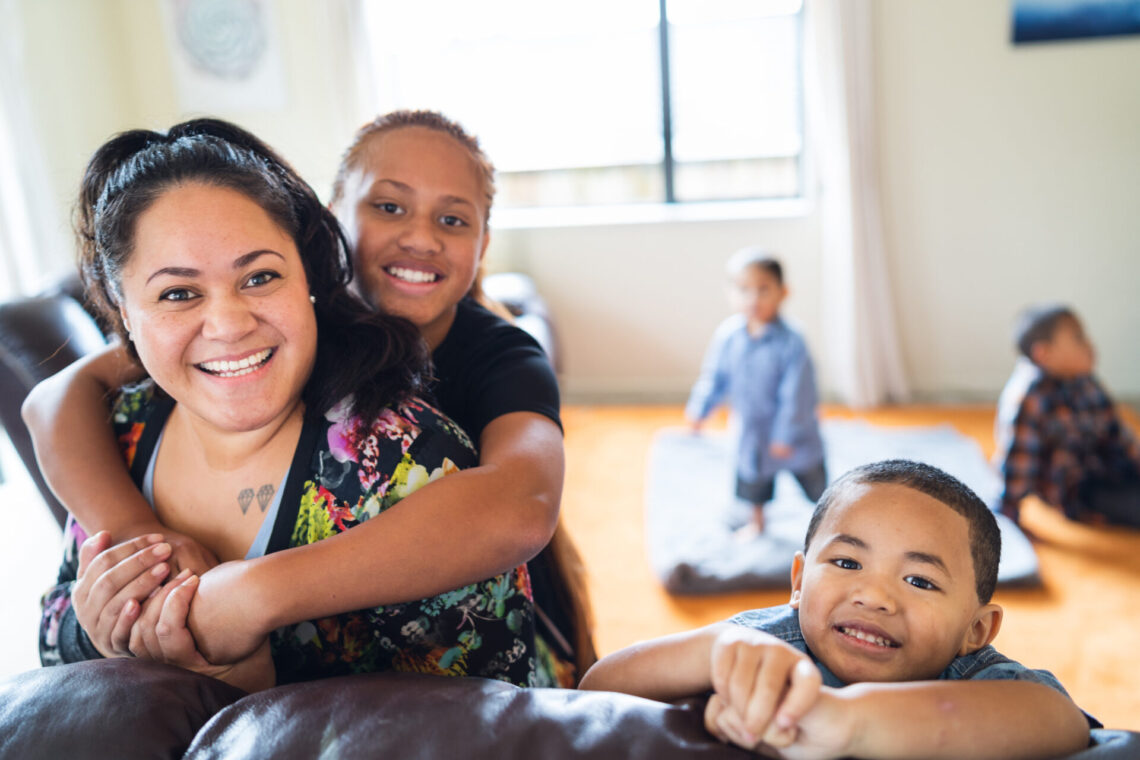
The St. Elizabeth Ann Seton Program provides individualized supportive services to single adult families who have recently moved from homelessness into permanent housing.
Sources: https://setonshrine.org/elizabeth-ann-seton/, https://www.catholic.org/saints/saint.php?saint_id=180, https://en.wikipedia.org/wiki/Elizabeth_Ann_Seton, https://en.wikipedia.org/wiki/Saint_Joseph_College_and_Mother_Seton_Shrine,
Volunteering in even simple ways can help those in need and improve your health and happiness. Here are nine benefits of volunteering:
1. Provides you with a sense of purpose
You may be able to find your purpose through volunteering and becoming part of something greater than yourself. For instance, if you’re retired, unexpectedly unemployed or have lost a loved one, helping others can give your life new meaning and keep you mentally stimulated.
2. Provides a sense of community
Volunteering can help you feel connected to those you are helping in the community. This experience may make you want to get involved with other aspects of your community, such as local politics or advocating for programs you believe are important.
3. Helps you meet new friends
Volunteering is a great way to meet new friends as well as strengthen existing connections with friends, family or coworkers. As a volunteer, you’ll typically interact with people from diverse backgrounds, which allows you to learn other perspectives.
When you choose an organization or cause to volunteer for, consider the people you’re volunteering alongside did as well. Sharing a common interest will help you build closer relationships with those around you.
4. Increases your social skills
Volunteering gives you a chance to talk to new people and sharpen your social skills. By spending a lot of time working with others and using social skills, like active listening and relationship management, you’ll have the opportunity to develop your future personal and business relationships.
5. Improves self-esteem
Volunteering may boost your self-esteem and self-confidence. When you do something you feel is worthwhile and valuable for your community, it gives you a sense of accomplishment that may help you feel more fulfilled about your life and any future goals.
6. Teaches you valuable skills
The training and hands-on experience you gain while volunteering can help you learn new skills as well as build upon ones you already have. For example, if you advocate and raise awareness or funding for a cause that interests you, you’ll gain valuable communication, public speaking, marketing and other hard and soft skills. You can then put these skills on your resume to show employers how you build relationships outside of work in addition to any personal interests that can set you apart from other candidates.
7. Brings fun into your life
Many people use volunteering as a way to pursue their hobbies while making a difference. For example, if you’re interested in the outdoors, you might volunteer at your community garden or help out at a children’s summer camp. Volunteering for organizations or causes also may provide you with a renewed sense of creativity and motivation that carries over into your personal and professional life.
8. Can help you be happier
It often feels good to contribute to projects and organizations that mean something to you. These good feelings can help lessen the effects of stress, anger or anxiety in your life. Volunteering may provide you with the tools you need to be a happy and well-rounded individual. Building bonds and connections with people you volunteer with also may counteract any social isolation. Many volunteer opportunities also may involve physical labor to keep you active and reduce stress.
9. Gets you out of your comfort zone
Through volunteer work, you may overcome the personal challenges of leaving your comfort zone and doing something new with people you may not know. You may be faced with various problems to solve as a volunteer that require you to exercise critical thinking skills that aid your own personal development.
Want to volunteer? View food pantry positions and pharmacy positions. Contact Zoe Lavender, Volunteer Coordinator, at (608) 442-7200 x71 for more info.
The Madison St. Vincent de Paul Youth Service Council (YSC), a high school group that lives out its charism of service, spirituality, and friendship under the auspices of the Society of St. Vincent de Paul — Madison, has had a busy fall season. This fall, Youth Service Council members have had three exciting opportunities to live out the spirit of the Society of St. Vincent de Paul: to serve, to pray and to grow in friendship.
Friendship
This year, the Youth Service Council’s theme revolves around a quote from St. Vincent de Paul, “Charity is the cement which binds communities to God and to each other.” For a shorter slogan, the quote displayed on the group’s t-shirts reads: Love Will Hold Us Together.
Gayle Westfahl, advisor to the Youth Service Council, is familiar with the Matt Maher song by the same name and noted that there would be an upcoming concert in Waukesha by Maher himself. Matt Maher is an internationally known Catholic contemporary artist who has performed for three popes, a nine-time GRAMMY nominated artist and is a three-time GMA Dove Award winner. Westfahl waded through the artist’s management team to inquire if Maher would be willing to meet with the group.
“Matt was gracious enough to agree to meet with us, and even provided tickets for the concert at a greatly reduced price,” Westfahl recalled. “He spent about 15 minutes with us.”
During their meeting with Maher, Youth Service Council members gave him one of their t-shirts with the words of his song emblazoned across the front. He encouraged them in their service.
“Faith cannot be lived metaphorically,” Maher said. “We have to live it physically… Service manifests the presence of Christ.”
During the concert, Maher referred to his meeting with the group.
As an introduction to his song, “Love Will Hold Us Together,” he proclaimed,
“Love – it’s like cement. It holds everything together.”
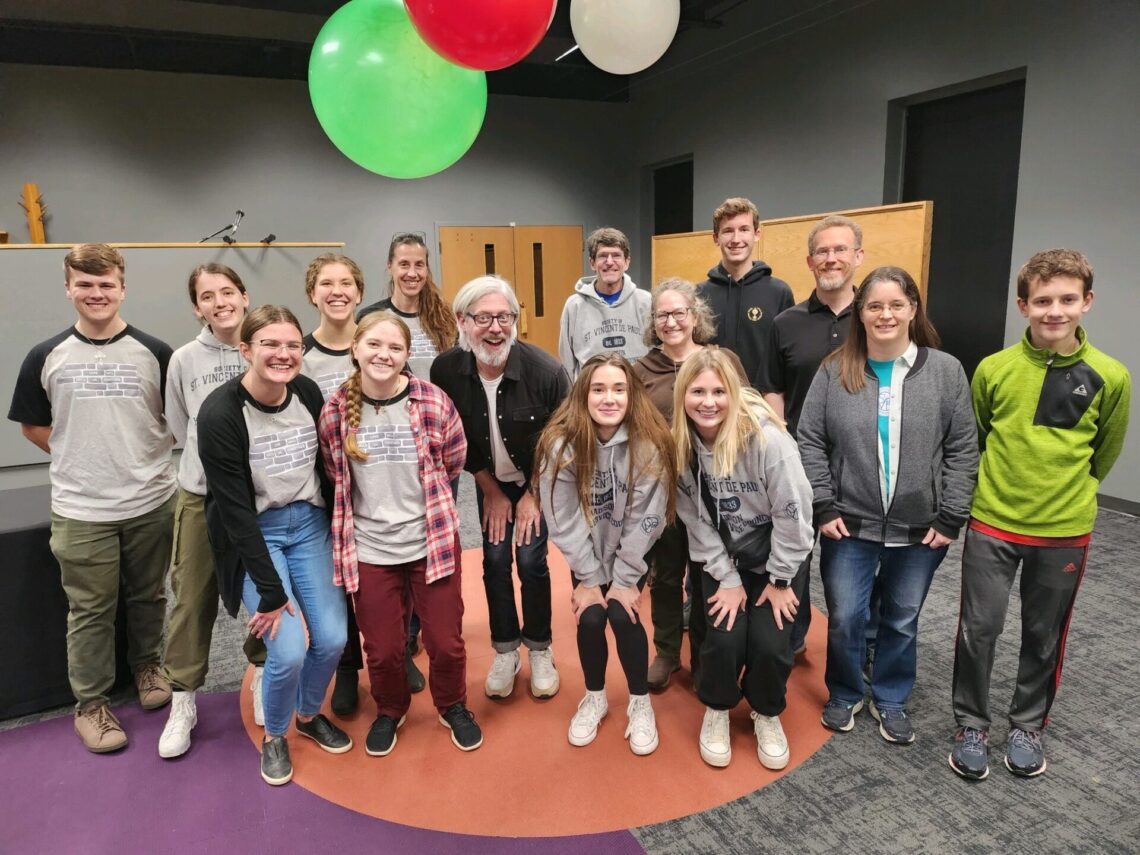
Youth Service Council members met and talked with artist Matt Maher before one of his recent concerts in Waukesha.
Spirituality
Two Youth Service Council members attended the national meeting of the Society of St. Vincent de Paul this year in St. Louis. While there, they visited with Bishop Hying, former National Episcopal Advisor for the National Council of the U.S., Society of St. Vincent de Paul. Bishop Hying said he would love to come to one of the group’s meetings back in Madison.
On Monday, December 4th, Bishop Hying not only attended a Youth Service Council meeting, but presided at a private mass for the group at St. Vincent de Paul — Madison’s Middlecamp Center for Vincentian Charity. He stayed to share dinner with the group and listen to their plans. Members shared with him why they enjoy being in the Youth Service Council. Many of them commented that the service they do is not only valuable to their community, but it is valuable to them.
“When you help others, you get a good look at yourself,” Laura, a high school member, said. “It’s important to listen and be there for people.”
Another member commented that volunteering, giving back and thinking about other people in her community who might be struggling allows her to give a sincere gift of self. She explained that she likes helping people not to make herself look good but because it’s what’s needed.
Service
It was Society of St. Vincent de Paul primary founder (now Blessed) Frédéric Ozanam’s desire that “all young people with both head and heart to assemble for some charitable work.”
One of the group’s fall initiatives was a Stuffed Sock Drive. They collected warm socks filled with hygiene products for those in need during the chilly winter months. Members conducted drives at their local parishes and returned baskets and bags overflowing with warm socks, mittens, shampoo, body wash, razors, deodorant, lotion, toothpaste and toothbrushes. They sorted the items for distribution through Vinny’s Lockers, the St. Vincent de Paul Food Pantry and other channels in the coming weeks.
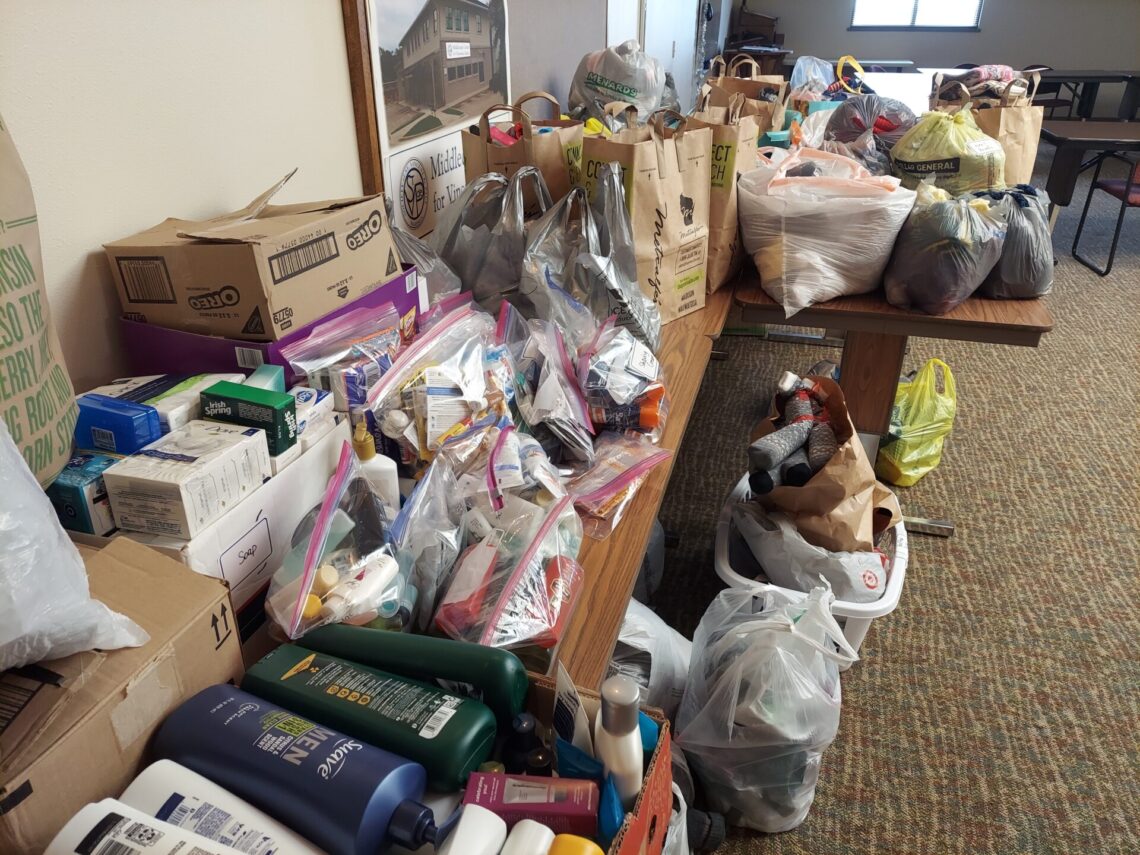
The Youth Service Council’s Stuffed Sock Drive collected bags and bags and bags of personal care items to provide to neighbors in need at Vinny’s Lockers and the St. Vincent de Paul Food Pantry!
The St. Vincent de Paul — Madison Youth Service Council is open to high school students who have a desire to grow in service, spirituality, and friendship. Meetings occur one to two times per month during the academic year with events as scheduled by the group. Members serve as representatives for their parish or school and join through an application process. If you or someone you know are interested in joining the YSC, applications open for next academic year in February. Visit svdpmadison.org/join-us and select “Members” to learn about their current work and for the application link.


